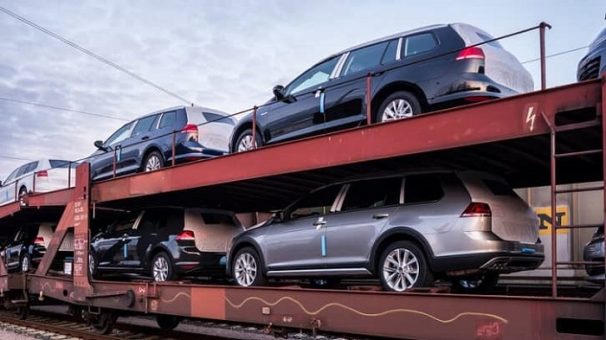What you need to know about electric vehicles

By Temitope Adebayo
Electric vehicles (EVs) can be a great choice for many drivers, but only you know what will work best for you. There are many things to consider when thinking about buying any vehicle. But specifically, before buying an Electric vehicle (EVs), here are the things you need to know.
Electric Vehicles (EVs) can help you save more than N460, 000 in fuel per year, on average.
They’re cheaper to maintain than fossil fuel-powered vehicles, as they don’t need oil changes and have single-speed transmissions and regenerative brakes.
If you’re concerned about air pollution from cars, EVs are the way to go. While vehicles running on gasoline emit about 11,000 pounds of CO2 equivalent annually, all-electric vehicles emit about 4,000 pounds annually while producing zero direct emissions. Because of all of these benefits to the environment, especially when compared to alternatives, EVs are a popular buy.
EVs cost less to maintain
The maintenance of a gas-powered car isn’t cheap – between brakes, tires, oil changes, radiator fluids, and other annual maintenance, there are quite a bit of moving parts that regularly need to be repaired. In an EV, it is as simple as “less is more.” Tires serve as the main contributor to regular maintenance costs, needing to be rotated roughly every six months.
READ ALSO: DJ Tunez & Amexin drops the visualiser for “Inner
Having a battery as the only propulsion system rather than the multiple propulsion systems typically found in an internal combustion engine (ICE) saves EV drivers twice the amount as ICE vehicle owners in maintenance and repairs. When it comes to annual maintenance, EVs have proven to be far less expensive to operate.
EVs are more efficient
The efficiency of a vehicle is measured by the amount of energy put into a vehicle, either gasoline or electricity, compared to how much energy is required to move the vehicle forward. According to the US Department of Energy, EVs convert about 77% of the received energy to power at the wheels while gasoline-powered vehicles convert between only 12% and 30% of energy to the wheels. That energy conversion makes EVs two to three times more efficient than ICE vehicles. EVs’ overall higher efficiency results in less waste being polluted into the environment.
EVs are safer and more reliable than gas-powered vehicles
A fully electric car has significantly fewer moving parts than vehicles with an ICE, making EVs less prone to mechanical error. With this lower probability of error, driving an EV keeps you as the driver and everyone else on the road safer than a gas-powered vehicle. EVs also have a lower center of gravity due to the location of the battery within the vehicle, between the wheelbases of the car, and beneath the passengers. This lower center of gravity reduces the probability of the vehicle rollover in the chance of an accident, keeping you and your passengers safe.
EVs fuel cost is consistent and less expensive
The price of gasoline is subject to the supply and demand of the world’s economy. With gas as an often uncertain and non-renewable resource, prices are going up and continuing to fluctuate, making the switch to an electric power source a much more stable cost. EVs have divorced the gas pumps and have found a more reliable partner – electricity.
There are three levels of charging for EVs. Level one uses a 120-volt household outlet; all EVs and plug-in hybrids can be charged on this level by plugging the charger into a regular wall outlet – giving the vehicle 3-5 miles of range per hour. Level two is most used for everyday charging and can be installed for roughly $2000 in households, workplaces, and public parking lots. Power from a level two charger can replenish between 12-80 miles of range per hour depending on the charger’s power output and the vehicle’s maximum charge rate. Level three chargers are the fastest type of charging available, with the caveat that they are the most expensive to install. These chargers can cost up to tens of thousands of dollars because of their direct current voltage – recharging the EV of 3-20 miles of range per minute.
Most EV owners who installed a charger in their home report a modest-to-unnoticeable increase in their electric bill and many cities provide free public charging stations that make charging affordable. Overall, a comparable gas-powered car can cost on average six times more in fuel.
EVs have competitive pricing with traditional hybrid models
With the EV market growing fast, more opportunities to purchase different sized vehicles and used EVs are on the horizon. If the market continues to expand as it is now, the current price gap between EVs and gas-powered vehicles will continue to decrease. The newer EV models are now offering longer-battery life compared to their predecessors. These longer ranges are reducing the cost to manufacture these batteries, lowering the overall price of the vehicle.










